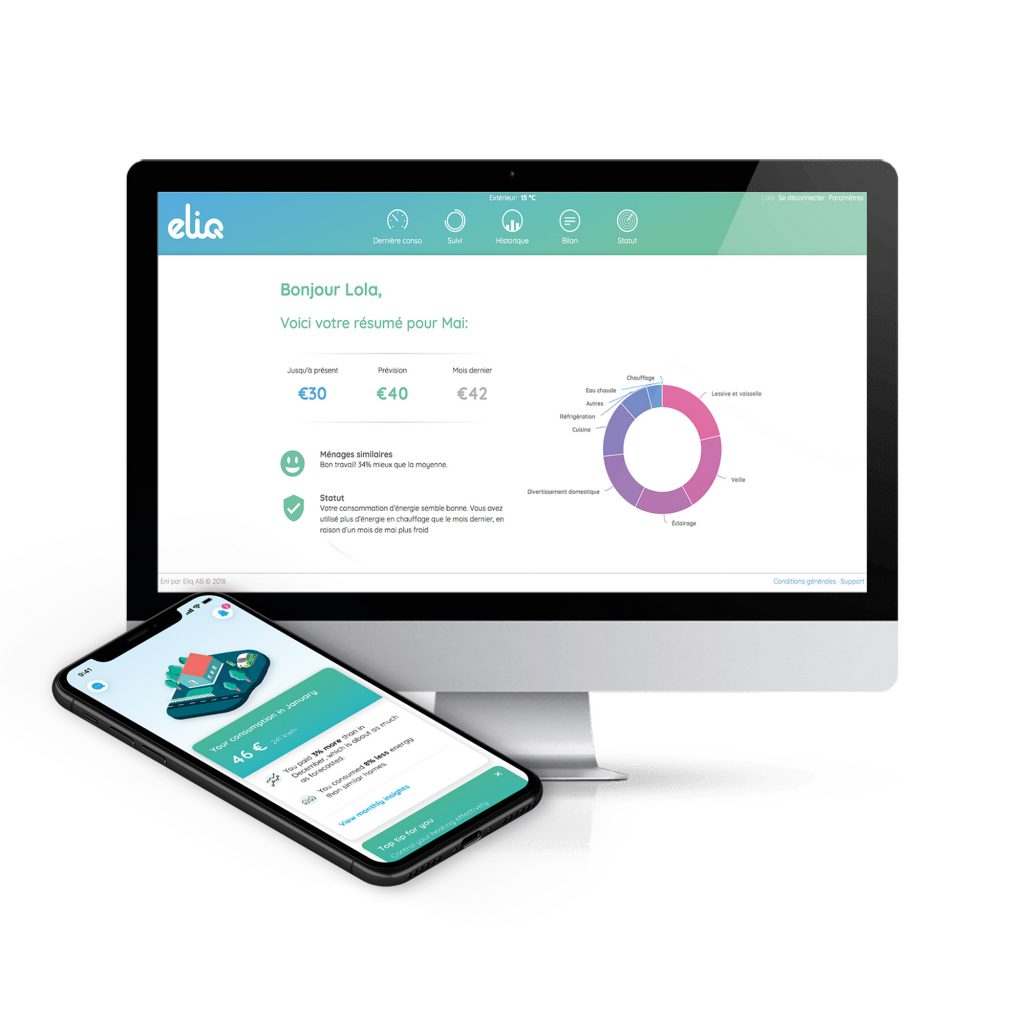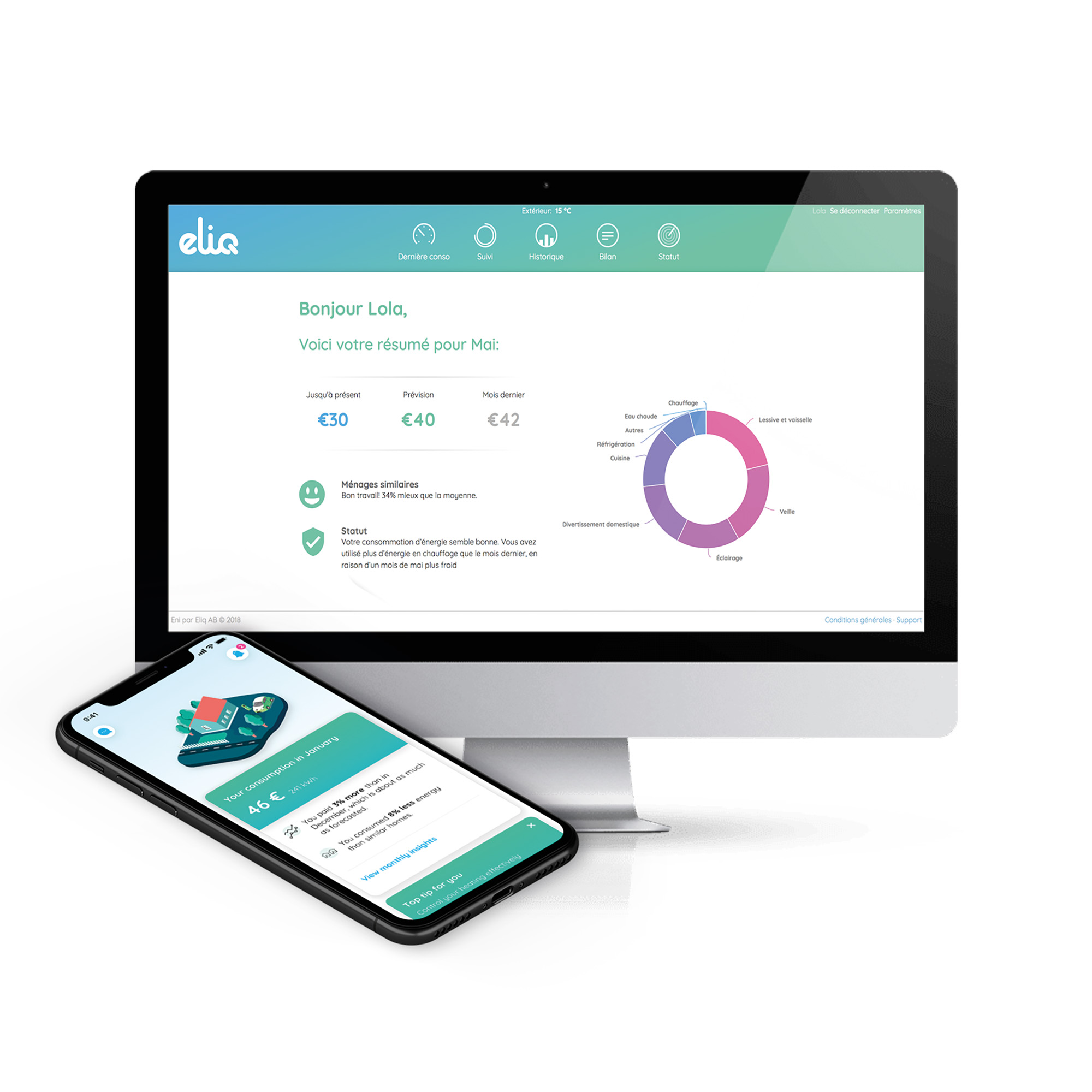Eliq is a SaaS platform that enables energy companies to deploy applications that help end customers better understand and manage their energy usage and accelerate their participation in the energy transition. The company is based in Gothenburg, Sweden, London, UK, and Vilnius, Lithuania, and enables leading utilities and retailers across Europe to deliver engaging digital products such as mobile apps, since 2016. Currently serving 20 utility companies and other service providers, with over 2 million users on the platform.
Easy Engineering: What are the main areas of activity of the company/range of products?
ELIQ: We enable companies like utilities and retail banks to easily build and deliver digital products to help customers manage their energy. Today, still, most people just think of their energy use as an arbitrary number that periodically shows up on the energy bill, but given access to a product built on our platform, we know that we can turn up to half of the consumers to engaged energy masters, who live easier lives, save money and feel great about being part of the solution to climate change.
We enable enables energy providers to build digital energy products that customers use and love. Thus, forming strong and long-lasting customer relationships.
We enable this through 3 different solutions. Energy Insights API: Our suite of APIs enables developers of energy apps to access advanced features across energy insights, DER connectivity and third-party data, making use of a decade of analytics and machine-learning, trained across millions of homes and years of consumption data.
White-Label: We offer utilities complete, out-of-the-box digital products. Our white-label apps combine personal AI-powered insights and advice on frictionless self-service and home energy automation add-ons in a tool that customers value deeply, making them radically more engaged.
PV Dissegration: Our PV Disaggregation technology doesn’t require customers to install any additional hardware, or even a particular compatible brand of PV inverters, but works plug-and-play for old PV systems as well as new ones.
E.E: What’s the news about new products?
ELIQ: Our newest addition to our product line is our PV Dissegrations technology, which was launched just earlier this year. It’s a brand new technology that uses standard import/export data from regular utility net meters, to determine both how much electricity was produced and consumed, unlocking the energy insights functionality that other customers have access to, and presenting prosumers with additional key insights, such as their self-consumption rate.
E.E: At what stage is the market where you are currently active?
ELIQ: The energy industry as a whole market is currently undergoing massive transformation, we are now tackling the decarbonization of energy consumption, the electrification of heat and transport, and the management of the increased variability of both supply and demand of energy. On top of this, Europe in particular is fast-tracking its transition to an energy system independent of natural gas.
On another level, we are tackling the disconnect between consumers’ increased engagement in the climate issue, and their lack of engagement when it comes to their energy consumption, energy efficiency, and optimization. This challenge is key to achieving all of the above and is at the core of what Eliq is addressing.
E.E: What can you tell us about market trends?
ELIQ: Since the second half of 2021, we’ve seen significantly higher energy costs in Europe. Costs are forecasted to remain high for the next few years, which may push millions of people into fuel poverty next winter. This has made energy efficiency a household topic, which cannot be ignored by utilities.
At the same time, European legislation is starting to increasingly hold banks responsible for their customer’s spending, and we are seeing significant demand for green and sustainable solutions from the financial services industry.

E.E: Some examples of innovation
ELIQ: There are so many amazing examples of innovation in this industry, that it’s difficult to pick just one. The way I see it, new ideas develop much more quickly in small, agile, and nimble organizations, where the operational efficiency of the large corporation is much more of a liability than an advantage. However, many startups need to rely on corporate partnerships to access the quantities of data and users they need to develop their technology and business model – so cooperation within the industry really is a must for innovation to keep flourishing.
For example, our partnership with Jersey Electricity, where we worked together to deliver a digital product, which has since been adopted by a third of households on the island of Jersey. The product helps the whole island to take a step closer to its 2030 carbon neutrality goal and has increased the engagement the utility has with its customers by a factor 10, all in the span of 6 months.
Another great example of innovation and cooperation is our work together with Vattenfall, the Swedish tier 1 utility, where we helped them produce insights to help district heating customers, the most disengaged at all, to access the carbon footprint of their heating usage, to help drive a more sustainable energy usage and improve efficiency in the heating plants.
E.E: What estimations do you have for 2022?
ELIQ: As utilities, banks, and other large, consumer-facing organisations are starting to act on the fact that energy and sustainability are not just for a small subset of people but an unstoppable force, a new tone is being set for every industry over the next decade. As the prices of batteries, solar panels, and other energy efficiency technologies are dropping and energy prices soaring, we are reaching the point when these technologies become profitable investments in more and more parts of the world, which will massively increase their adoption.
Also, we are thrilled to see the rapid increase in the adoption of demand-side management or flexibility systems for homes. By allowing the electric car to charge itself – for example by the use of Eliq’s smart charging technology, when the price of energy is lower, and the electricity is greener, we can avoid using the worst sources of electricity generation.


